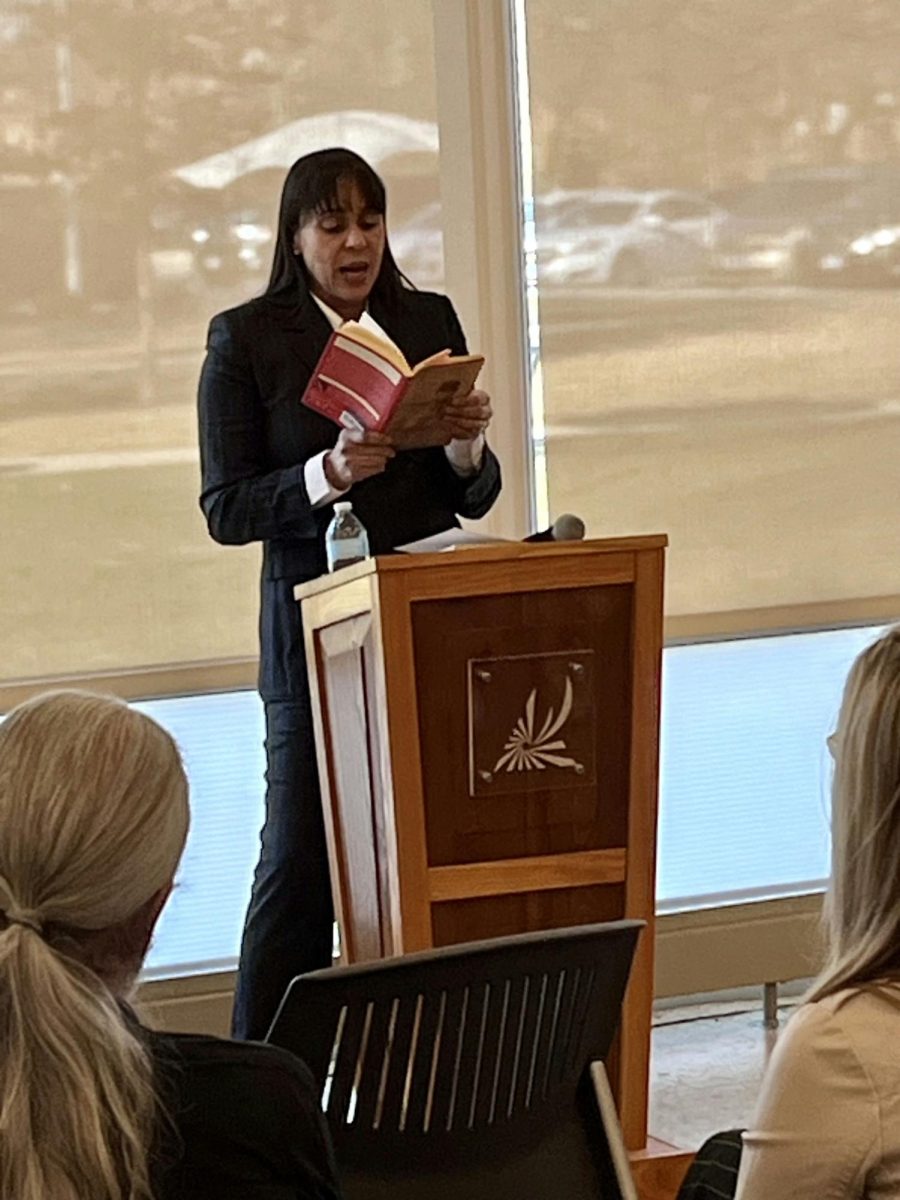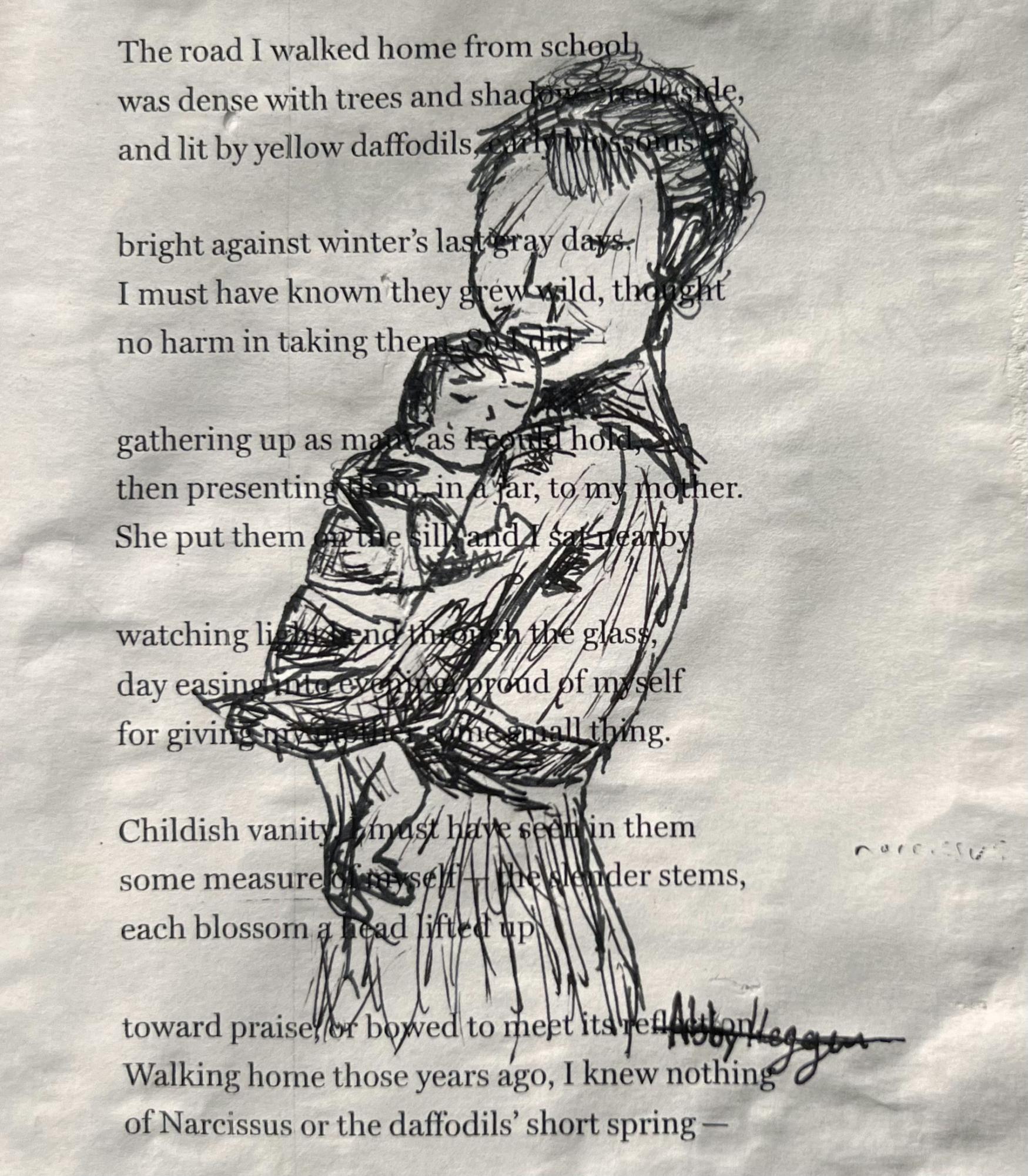Two-term U.S. poet laureate and best-selling memoirist Natasha Trethewey, named guest of honor at NEIU’s Annual Brommel-Hahs Lecture, shares what it’s like to live in the wake of her mother’s absence and how she has been coping.
“I understand that many of you have been assigned either Memorial Drive or Native Guard,” Trethewey began, referring to her two critically prized and praised works she would go on to read from.
Both works elaborate on the events leading up to her stepfather’s murder of her mother, how she didn’t–couldn’t–see the signs, and carrying on in the aftermath. The content is largely consistent and yet the form changes. Memorial Drive: A Daughter’s Memoir is a work of prose and Native Guard is poetry. On this difference, Trethewey said they were complementary representations of the “intersection between my two existential wounds.”

The infliction of her first wound came with recognizing her native land, Mississippi, as a “brutal history of violence and oppression.”
With that, she began reading “Miscegenation,” a poem from her 2007 Pulitzer Prize-winning Native Guard, which reveals her parents’ marriage in 1965, when interracial marriage was still illegal in Mississippi. Trethewey was born a year later, and she would come to understand her existence as “illegitimate in the eyes of the law, persona non grata.”
Not too long afterward, states began vetoing anti-miscegenation laws. However, “over 40% of the voting population voted to keep [them],” Trethewey noted.
“One of the things that I’m always concerned about also is the intersection between public and personal history, the contentions, and often the things that are left out of the historical record–or erased,” Trethewey said. “It happens in the textbook too…[they] so enjoy creating a narrative of the South, of valor, of virtue, and not at all [about] a matter of slavery–erasing the truth of why the war happened.”
When Trethewey arrived back in Atlanta in 2001 to teach at Emory University, “These textbooks were still in use all around the South,” she said, providing context to her poem “Southern History.”
Trethewey also read from parts of her memoir, “Incident,” “Southern Gothic,” “My Mother Dreams Another Country,” “Myth,” “Imperatives for Carrying On in the Aftermath,” and “Articulation.”
Similar to her memoir, which Trethewey describes as “very much about surviving in the wake of trauma and tragedy, about the enduring bond between a mother and a daughter, about becoming a writer,” the last three poems especially attempt to address her second existential wound–the murder of her mother, which she describes as “beyond the words of history,” when she herself experienced it at only 19 years old.
Trethewey’s reading was followed by a Q&A with attendees. During the discussion, she opened up about reading and writing a personal work for a public audience.
“It’s not difficult,” Trethewey said, “Writing, or making any kind of art, is the happiest and most hopeful of all actions.” Through writing, she found a way to release all her emotions, all the horrific experiences, to make something beautiful out of them, to be able to say, “I’m still here, I’ve survived.”
Trethewey continues, “I did not want there to be any element of surprise. I wanted the reader to know from the very first page that she was gone.” And yet, citing the nonlinearity of the poem as an imitation to “the way memory works,” Trethewey wants readers “once they proceed through, in their own linear fashion,” to “hope on every page, that she might survive.”
On this, junior English major Israel Lawton said, “I think I had forgotten how brave poetry can be. Trethewy’s reading reminded me of the courage inherent in the form, particularly in terms of performance. Of course, “having the poet laureate speak was a rare honor,” too.
The event was organized by NEIU’s English Department and had a turnout of 70 students.
Dr. Bradley Greenburg, Chair of the English Department, said in a statement to the Independent, “I’ve taught her poetry many times and deeply admire her work. She’s also someone I thought students could relate to, given the dramatic story of her life she tells in Memorial Drive and elsewhere.”
For English Literature graduate student Timothy Garrison, who attended the event, this was one of its main pulls; “I appreciate hearing poets from the South, because I’m originally from Georgia and South Carolina, and I’ve lived in Kentucky.” He added, “I’ve been assigned to read her poetry in several classes at NEIU, at both the undergraduate and the graduate level, and when it comes to living poets and writers, I think it’s so valuable to hear their reading voices.”
Trethewey’s triumph is a testament to her resiliency and a reminder that personal and public history can be meaningfully intertwined, “A way to articulate…experience in language that one hopes is meaningful also to the reader.”





